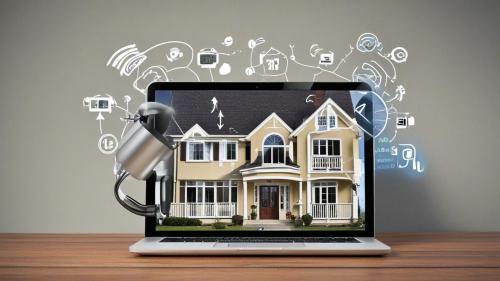In an age where smart technology and sophisticated threats are evolving side-by-side, traditional home security measures are no longer sufficient. Imagine this: you've set up the usual, possibly a camera at the front door, a motion sensor by the garage, and maybe a loud alarm system meant to startle intruders. But is this dated approach enough to safeguard the modern home?
Many homeowners, comforted by an array of gadgets, believe they're at the forefront of personal safety. The truth, however, is quite nuanced. While standard security systems act as deterrents, innovative threats demand that we consider beyond the mere functionality of these gadgets and think holistically about home security.
Let's wander through the corridors of cutting-edge home security strategies, embracing not only the technology but also the psychology behind preventing intrusions. It's not simply about what you buy but also how you integrate, manage, and layer these security strategies to build an almost impenetrable fortress. That is the essence of a truly secure home.
To begin with, enhancing home security starts with understanding the psychology of intruders. Most burglaries are crimes of opportunity; a criminal's decision is often a split-second calculation based on ease and risk. Therefore, making your home visibly less attractive through environmental design is paramount. Consider thorny bushes under windows, vibrant lighting, and the illusion of someone always being home through smart timers and AI-driven activity simulators. These subtle cues function subliminally, turning a potential passage into an obstacle.
Next, technology's role. Once popular, standalone systems are fading, giving way to integrated networks that allow multiple devices to 'speak' to each other. Imagine a motion sensor alerting your phone, prompting the outdoor camera to stream live footage, while the interior lights flicker—creating a human-like presence. This synergy forms a web, offering not just layers of security, but a narrative suggesting human activity where there's none.
Cybersecurity is another frontier in home security. In today's connected world, your Wi-Fi could be the weakest link. Intruders don't need to physically enter your home to wreak havoc; they can exploit vulnerabilities in unprotected networks to access sensitive personal information or disable alarm systems. Ensuring robust passwords, keeping firmware up-to-date, and using secure Virtual Private Networks (VPNs) enriches your defense strategy considerably.
For more proactive engagement, consider community-driven security initiatives. Neighbors connected through apps can share live footage, alerts, and engage in neighborhood watches with real-time updates. Strength lies in numbers, and when communities utilize technology collectively, the diffusion of vigilance blankets entire neighborhoods.
Of course, the notion of security cannot ignore the ethical dimension. The use of these technologies poses questions about privacy—your own and that of visitors. The balance must be struck between vigilance and ethical boundaries to ensure you're not sailing too close to Big Brother's boat.
In conclusion, the future of home security lies in an augmented amalgam of psychology, technology, community coordination, and ethical mindfulness. It’s an endeavor not just to guard the perimeter but to foster an evolving mindset embracing the intricate tapestry of security possibilities. Perhaps, the ultimate takeaway for homeowners is not complacency satisfied by hardware alone, but the continuous pursuit of synergy between human acumen and technological capabilities.
After all, in the dance between security and threat lies innovation. And in that innovation lies peace of mind.
Home security systems: beyond the basics




